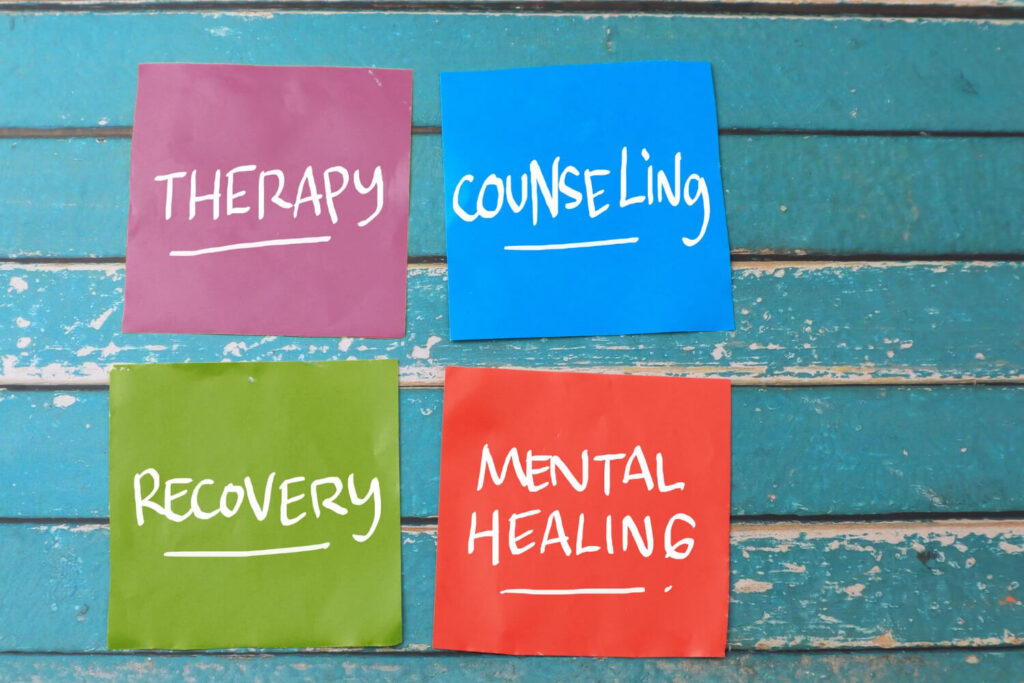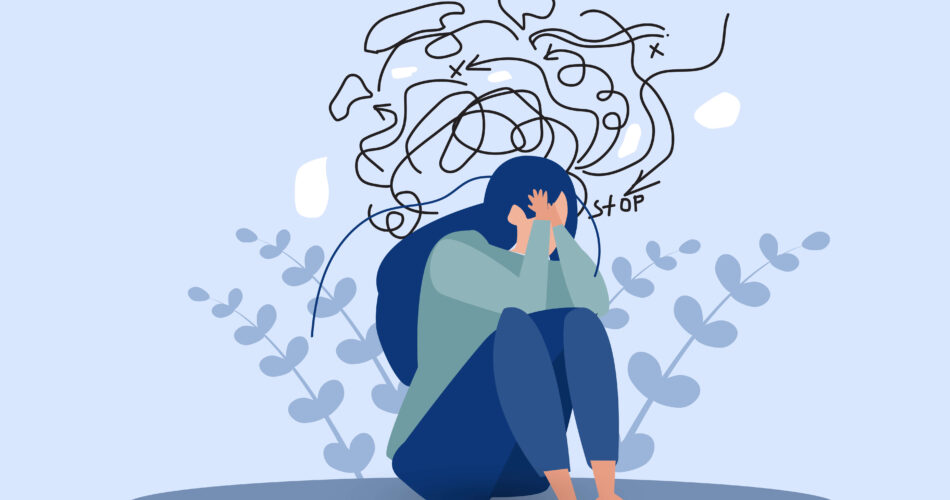One of the common conditions that people often disregard is mental illness. It is commonly misunderstood, which can impact the way of living of patients and the people around them. Furthermore, there’s an ongoing stigma about such types of illness, which is why people haven’t addressed this problem properly. That’s what we aim to break today through introducing the signs of mental illness.
Let’s explore the aspects of mental illness and be guided on when to take proper action for optimal function of body and mind.
Defining Mental Illness

Mental illness refers to a broad range of conditions that affect a person’s thinking, mood, and behavior. These conditions can significantly impair an individual’s ability to function and interact with others. It is important to note that mental illness is not a personal weakness or character flaw, but rather a medical condition that requires proper diagnosis and treatment.
There are various factors that can contribute to the development of mental illness. Biological factors, such as genetics and brain chemistry, play a significant role. For example, individuals with a family history of mental illness may be more prone to developing certain disorders. Additionally, imbalances in neurotransmitters, which are chemicals in the brain that regulate mood and emotions, can contribute to the onset of mental illness. On the other hand, environmental factors also play a crucial role in the development of mental illness. Traumatic experiences, such as abuse, neglect, or the loss of a loved one, can have a profound impact on a person’s mental well-being.
With the different risk factors that a person can experience, there’s no denying that the probability of suffering from a mental illness is very common. It only depends on how the individual can handle the different factors, especially if these are too much for them to grasp. When that happens, seeking immediate help from a psychiatrist should occur.
Identifying Different Mental Illnesses
While there are various factors that can result in mental illnesses, patients must also be aware of the wide spectrum mental illness encompasses. Take note that the wide range of disorders are each with its own unique set of symptoms and challenges. Let’s take a closer look at some of the most common types of mental illnesses below!
Depression
It is characterized by persistent sadness, loss of interest, and feelings of hopelessness. It can affect a person’s ability to carry out daily activities and can lead to a decrease in productivity and overall quality of life. Furthermore, individuals with depression may experience changes in appetite, sleep patterns, and energy levels. It is important to seek professional help if you or someone you know is experiencing symptoms of depression.
Anxiety Disorders
This mental condition involves excessive worrying, fear, and panic attacks. Usually, an anxiety attack can be debilitating and can interfere with a person’s ability to function in various areas, such as work, school, and relationships. Common types of anxiety conditions include the following:
- generalized anxiety disorder
- panic disorder
- social anxiety disorder
- specific phobias.
Addressing these conditions are vital to live fully without limits and regrets. Fortunately, there are various anxiety medicines in the Philippines to help patients combat anxiety disorders. If you are one of those who suffer from such a condition, it would be best to seek immediate help from a mental health professional.
Bipolar Disorder
Meanwhile, in terms of extreme mood swings, bipolar disorder is a known condition that a person might suffer from. In cases like this, the patient may have a series of manic episodes.
The mood swings are very unpredictable and can impact both the patient’s and family members’ daily life. In most cases, these are possible situations a person with this disorder can feel:
- heightened energy
- impulsivity
- euphoria
- depressive states of sadness
- lethargy
- feelings of worthlessness
It is important for individuals to seek an expert’s help for accurate diagnosis. With the expert’s help, patients can receive a proper treatment plan, which may include psychotherapy, mood stabilizers, therapy, and lifestyle changes.
Schizophrenia
Another known mental illness is schizophrenia, which is a chronic mental disorder that affects a person’s thinking, emotions, and behavior. Patients can expect to have these warning signs like distorted thinking, hallucinations, delusions, and difficulty distinguishing reality from fantasy.
Individuals with schizophrenia may experience a decline in their ability due to mental health problems. That includes failing to function in various areas of life, such as work, school, and relationships. With such complications, the first step patients must do is to seek treatment immediately. Treatment plans for schizophrenia often involve a combination of medication, therapy, and support services.
Eating Disorders
Lastly, in terms of disorders involving food and body image, individuals might have eating disorders. There are several sub-categories under this mental illness, and some of them involve anorexia nervosa and bulimia nervosa
These disorders can have serious physical and psychological consequences to individuals as it can include an intense fear of gaining weight. With such problems, they might engage in restrictive eating patterns or engage in binge-eating followed by purging behaviors.
Treatment for eating disorders often involves a multidisciplinary approach, including medical, nutritional, and psychological interventions. With its multifaceted concerns, it’s crucial to seek help and support from loved ones and health experts. Thus, ensuring a proper treatment plan is followed for a healthier body and mind.
Identifying Signs of Mental Illness

While understanding what the wide range of conditions can affect, it is also important to be aware of the signs of mental illness, which can verify a person has a mental health disorder. It can be challenging to identify, especially with how the condition symptoms can correlate with each other. That’s why it is important to know the different symptoms involved like the emotional, physical, and behavioral signs. Knowing each of them will not only indicate the presence of a mental health issue, but can also prevent misdiagnosis.
Emotional Symptoms
These emotional signs of mental illness are often the first indicators of a mental health issue. They can manifest in various ways, affecting an individual’s overall well-being and quality of life.
- Intense sadness or a persistent feeling of emptiness
- Difficulty concentrating or making decisions
- Feelings of guilt, worthlessness, or hopelessness
- Irritability, anger, or frequent mood swings
- Loss of interest in activities once enjoyed
Physical Symptoms
On the other hand, mental health issues can also manifest in physical symptoms. These symptoms can be distressing and may require medical attention to address both the physical and mental aspects of the problem.
- Changes in appetite or weight, including significant weight gain or loss
- Insomnia or excessive sleeping
- Physical aches and pains, such as headaches or stomach aches
- Elevated heart rate or shortness of breath
- Fatigue or lack of energy
Behavioral Changes
Lastly, the symptoms involving one’s behavior can also signify a problem in one’s mental health. These changes in behavior may be noticeable to others and can have a profound impact on an individual’s relationships and overall functioning.
- Social withdrawal or isolation from friends and family
- Inability to carry out daily tasks or meet responsibilities
- Engaging in risky behaviors or self-destructive actions
- Increased use of alcohol or drugs
- Excessive restlessness or agitation
As a summary, issues in mental health are occurring when there are significant changes involved. These changes can affect the person’s way of living, which is why family members should be aware of the different symptoms mentioned. Having this knowledge is crucial as patients suffering from these conditions need strong support. Thus, helping them to receive mental health services for treatment.
Importance of Crisis Lifeline Services
A mental health issue is a heavy burden that patients should not battle alone. With how complex the conditions are, it is a must to have an immediate coping plan whenever continuous manic episodes occur. Fortunately, online services for mental health crises are available.
These platforms allow patients to seek help through online chats or booking online sessions with a psychiatrist. During the session, they can indulge in talk therapy to help alleviate the depth of their condition at the moment. However, when there are several triggers that can compromise their life, patients are encouraged to book con
When to Seek Professional Help

Determining when to seek professional help for mental illness is essential. While experiencing occasional sadness, stress, or anxiety is normal, persistent symptoms that significantly interfere with daily functioning may indicate the need for professional intervention. Factors to consider include the severity and duration of symptoms, as well as the impact on overall quality of life.
Evaluating the Severity of Symptoms
Patients can acknowledge their condition as an urgent matter for seeking an expert if the symptoms are identified as severe. There are cases wherein the individual’s ability to perform daily activities, maintain relationships, or enjoy life are being compromised. With such situations, it only suggests the need for immediate help to begin intervention.
Meanwhile, there are also crucial situations involving suicidal thoughts, hallucinations, or delusions. With such a dilemma, there’s a possible chance that it can lead to further harm. Thus, the importance of setting appointment right away
Considering the Duration of Symptoms
Aside from the severity of the situation, another reason why a person should visit a health professional for mental health is due to the series of symptoms and its duration. If the symptoms persist for an extended period, typically lasting for more than two weeks, it may indicate the presence of a mental health condition.
Chronic or recurrent symptoms should not be ignored, as they can worsen over time.
Conclusion
Recognizing the signs of mental illness and knowing when to seek help are both vital for patients with mental health illnesses. By understanding the potential risks the conditions can bring to their daily life, patients can be more empowered to seek immediate help. Furthermore, by learning the differences of each condition, everyone, especially the patient’s loved ones, can be more keen on being a support system for the patients. Thus, increasing the possibility of having a healthier mental health because of supportive foundations in the patient’s life.
Mental health requires effective communication, empathy, emphasizing the importance of seeking professional help when needed. Foster a greater understanding of mental health and reduce the stigma surrounding mental illness.



